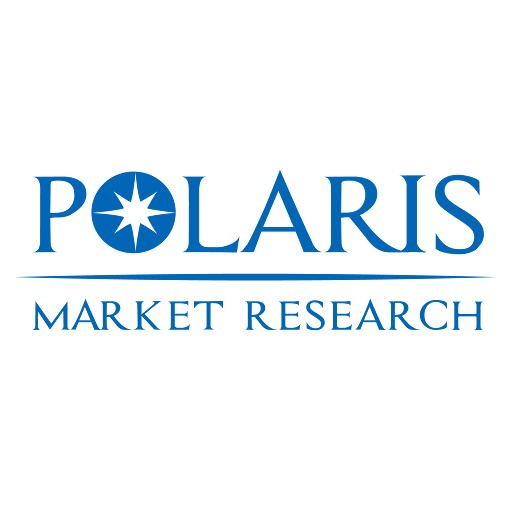North America and Europe Lead the AI in Drug Discovery Market, Supported by Robust Biopharma R&D and Regulatory Acceptance of AI Models

The AI in drug discovery market size was valued at USD 1.99 billion in 2024. The market is projected to grow from USD 2.65 billion in 2025 to USD 35.42 billion by 2034, exhibiting a CAGR of 29.6% during 2025–2034. This extraordinary growth trajectory reflects a fundamental reconfiguration of pharmaceutical R&D, where artificial intelligence is no longer experimental but instrumental in accelerating target identification, compound screening, and clinical trial design. By drastically reducing the time and cost of early-stage discovery—traditionally a decade-long, $2–3 billion endeavor—AI is enabling both large pharma and agile biotechs to pursue previously intractable disease targets, from rare genetic disorders to complex neurodegenerative conditions.
North America, led by the United States, dominates the global market, accounting for over 45% of revenue in 2024. This leadership stems from a confluence of deep venture capital funding, world-class academic institutions, and a regulatory environment increasingly receptive to computational innovation. The U.S. Food and Drug Administration’s (FDA) 2023 guidance on the use of AI/ML in drug development provides a structured framework for validation and submission, encouraging adoption. Public-private partnerships, such as those under the National Institutes of Health’s Bridge2AI program, are generating high-quality, ethically sourced biomedical datasets essential for training robust models. Moreover, the concentration of AI-native biotechs—many spun out of MIT, Stanford, and Harvard—in hubs like Boston and San Francisco creates a self-reinforcing ecosystem of talent, capital, and collaboration. Canada complements this landscape through initiatives like the Pan-Canadian Artificial Intelligence Strategy, which funds health-focused AI research at institutions such as Mila and Amii, though commercialization remains more limited compared to the U.S.
Europe presents a robust but fragmented market, shaped by strong scientific foundations and evolving regulatory clarity. The European Medicines Agency (EMA) has launched a dedicated AI working group to address validation, bias, and transparency in algorithmic drug discovery, signaling cautious but progressive engagement. Germany and the UK lead in translational activity: Germany’s Federal Ministry of Education and Research (BMBF) has committed over €100 million since 2021 to AI-driven health projects, including the “AI in Life Sciences” consortium. In the UK, the Medicines and Healthcare products Regulatory Agency (MHRA) participates in the international Access Consortium, facilitating cross-border evaluation of AI-supported submissions. However, data governance under the GDPR imposes constraints on cross-institutional data sharing, slowing the assembly of large, diverse training sets. France and Switzerland also contribute significantly through public research institutes like Inserm and the Swiss Institute of Bioinformatics, yet the absence of a unified European data infrastructure hampers scalability compared to the U.S. model.
The Asia Pacific region is the fastest-growing market, propelled by strategic national investments and rising biopharmaceutical capacity. Japan’s Ministry of Economy, Trade and Industry (METI) identified AI-driven drug discovery as a priority in its 2023 Biotech Strategy, allocating funding to integrate generative AI into compound design pipelines. South Korea’s Ministry of Science and ICT supports initiatives like the AI Drug Discovery Center at KAIST, fostering industry-academia partnerships. China, despite recent regulatory tightening, remains a powerhouse: the National Medical Products Administration (NMPA) has fast-tracked approvals for AI-assisted diagnostics, and companies like Insilico Medicine and XtalPi have secured significant domestic and international funding. India is emerging as a cost-competitive hub for AI-powered computational chemistry services, supported by the Department of Biotechnology’s “Biotech-PRIDE” guidelines that encourage digital innovation. Nevertheless, intellectual property protection concerns and inconsistent data standards across the region pose ongoing challenges to long-term investment.
Read More @ https://www.polarismarketresearch.com/industry-analysis/ai-in-drug-discovery-market
Latin America and the Middle East & Africa remain nascent but show early promise. Brazil’s Ministry of Science, Technology and Innovation has launched pilot programs linking AI startups with Fiocruz, the national public health research foundation, focusing on tropical disease targets. In the Gulf, Saudi Arabia’s Vision 2030 includes biotech as a strategic sector, with NEOM’s Oxagon hub attracting AI-health ventures. However, limited high-performance computing infrastructure and a shortage of interdisciplinary talent—spanning biology, data science, and pharmacology—constrain broader adoption outside flagship projects.
Key restraints include the “black box” nature of some deep learning models, which complicates regulatory validation, and the scarcity of high-fidelity, labeled biological datasets. Opportunities abound in generative chemistry, multi-omics integration, and patient stratification for clinical trials. A defining trend is the shift from point solutions to end-to-end https://www.polarismarketresearch.com/press-releases/artificial-intelligence-in-drug-discovery-marketAI discovery platforms, while generative molecular design, target validation automation, and clinical trial optimization algorithms are becoming standard capabilities. Simultaneously, cross-border data collaboration frameworks, explainable AI for regulatory submissions, and cloud-based computational biology infrastructure are shaping competitive advantage.
- Insilico Medicine
- BenevolentAI
- Recursion Pharmaceuticals
- Exscientia
- Atomwise
- Schrödinger, Inc.
- Cyclica
- Owkin
More Trending Latest Reports By Polaris Market Research:
Ultrasound Needle Guides Market
Sustainable Manufacturing Market
Ultrasound Needle Guides Market
Biologics Contract Development Market
- AI
- Vitamins
- Health
- Admin/office jobs
- News
- Art
- Causes
- Crafts
- Dance
- Drinks
- Film
- Fitness
- Food
- Juegos
- Gardening
- Health
- Home
- Literature
- Music
- Networking
- Other
- Party
- Religion
- Shopping
- Sports
- Theater
- Wellness


